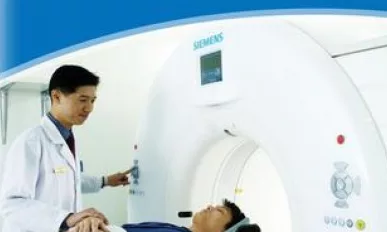Antah Healthcare Group : Growth on All Fronts
From expanded warehousing and product lines to new markets and treatment discovery, Malaysia’s Antah HealthCare Group is in a phase of unrelenting activity.
JMS Singapore Pte Ltd : The Bridge to Good Healthcare
JMS Singapore has merged intrinsic Japanese values of lean manufacturing and technology-based progression to evolve a healthcare industry that calls for care and consideration.
HSC Healthcare : The One-Stop Medical Shop
HSC Healthcare Group is taking on Asia, expanding as a leading healthcare provider in the region.
Allscripts Healthcare IT (Singapore) Pte Ltd
Allscripts Healthcare IT (Singapore) Pte Ltd is successfully aiding the healthcare industry in Asia in its mission to achieve digital maturity, while endeavouring to help patients enjoy a healthier life.
Hope Ambulance Service : When Life Matters
Hope Ambulance Service is redefining emergency medical services in Singapore; a growing 15-year longevity typifying its list of achievements.
SEED Co Ltd : Supporting Your Needs
SEED Co Ltd has become a focal point in Japan’s eye care industry over the past 60 years, and is now looking to capitalise on this regional reputation to apply the same innovation further afield.
The Salvation Army SMM : Sharing One Message
The Salvation Army SMM goes above and beyond to ensure that it continues to be successful in transforming lives, through the services it has to offer.
The Hearing Solution Group : Attending Your Hearing Needs
The Hearing Solution Group is providing complete hearing and communication healthcare in Singapore, utilising the latest testing procedures available to restore and enhance hearing, speech perception and communication.
Singapore National Eye Centre : Eminence in Ophthalmology
In the middle of Singapore’s transition from a manufacturing-based economy to a knowledge-based “value creation” hub in 1990, the Singapore National Eye Centre (SNEC) was established.
HSC Healthcare Group : From Local to Regional
The inception of HSC Healthcare Group began with the opening of HSC Medical Centre, in Kuala Lumpur in 2003, and since day one it has been committed to medical excellence and world-class one-stop healthcare delivery.











































